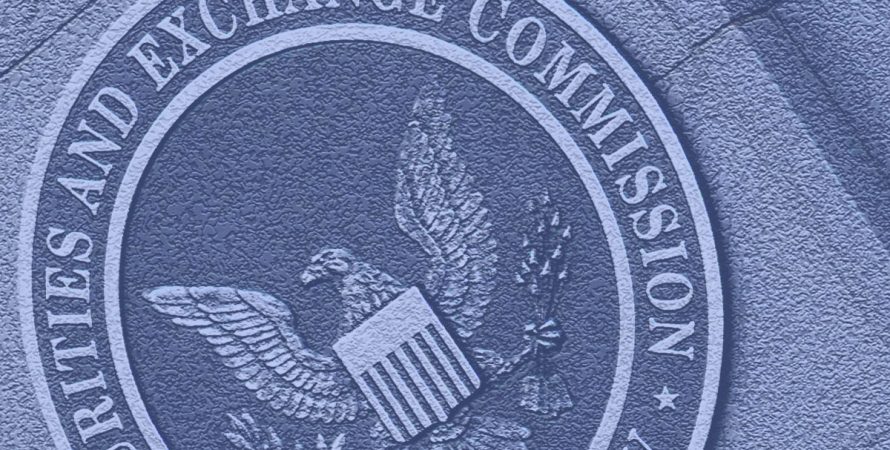A collection of top crypto asset managers, including Dragonfly Digital and Electric Capital, are the latest to dissent to the SEC’s new proposed custody rules
Objections to the SEC’s proposed shifts to the US regulator’s long standing custodial rules are mounting.
In a joint letter this week, representatives from Bain Capital Crypto, Dragonfly Digital, Electric Capital, Haun Ventures and Ribbit Capital on Monday joined a growing number of dissenting industry voices to the SEC’s efforts to shift custodial regulations for registered investment advisers (RIAs).
The five firms in the letter said they collectively “manage over $15 billion in assets, including crypto assets” on behalf of institutional investors. None of the five immediately returned a request for comment.
Top industry figures, including the crypto lobbyist Blockchain Association, have weighed in recently, too.
“The safeguarding of crypto assets is a vital concern for our industry, but it must be properly balanced against the real concern of stifling emergent technology and innovation,” the letter said.
Stay in the know on crypto by frequently visiting Crypto News Today
A great deal of crypto-native dispatches to the SEC of late have decried a lack of self-custodial options for digital assets under the new rules.
Signed by top compliance and legal executives from their respective firms, the letter called into question the impact of the proposed rule changes on crypto traders — and, especially, their investors.
The executives went as far as to say that, lacking appropriate crypto self-custody provisions, “investors lose out on an investment opportunity and the adviser is required to neglect its fiduciary duty to its investors.”
The objections pertain to the SEC’s Rule 223-1, which remains open for public comment. It was first introduced by the regulator in February.
Qualified custodians poised to control crypto for RIAs
One major and contentious piece of the SEC’s proposal would require qualified custodians, as defined by the federal regulator, to oversee the custody of a basket of assets beyond the scope of what’s currently required.
If they take effect, the SEC’s new custodial rules would expand the requirements for asset safekeeping of client funds overseen by an RIA — even assets not currently regulated by the SEC as a security.
The updated guidelines appear poised to require crypto asset managers, including venture firms with token investments, to tap a US-regulated, qualified custodian for their digital assets.
In making the case for crypto self-custody to be permissible, at least in certain circumstances, the letter repeatedly drew on the idea that forcing crypto custody exclusively into the hands of third-party custodians would ratchet up custody fees and stifle related innovation.
“For a qualified custodian to support a particular crypto asset requires a large upfront investment of operational resources,” the letter said. “This is ultimately a business decision for the custodian as to whether to support a particular asset. Therefore, during the period when a custodian is unable to take custody of crypto assets, advisers have to rely on self-custody.”
The proposal also objected to the SEC’s proposal to make state-chartered crypto custodians gain FDIC approval in order to operate.
There have been “many safeguards that have been developed to self-custody crypto assets,” the letter said.
And the representatives in the letter said that they agree with the SEC that “an overhaul of the entire framework is advisable.”
Ideally, if certain crypto-friendly provisions are added in.
“Investment advisers need a unified and consistent framework for the custody of client assets of all types in order to provide investors with professional investment management services,” the letter said.
It gave a few industry examples, including multi-signature wallets and cold storage kept on-location by a crypto investment firm.
And crypto asset managers should be subject to an outside audit of their investment activities and operations, at least on an annual basis, it said.![]()
Read More at BLOCKWORKS
Please Read Essential Disclaimer Information Here.
© 2024 Crypto Caster provides information. CryptoCaster.world does not provide investment advice. Do your research before taking a market position on the purchase of cryptocurrency and other asset classes. Past performance of any asset is not indicative of future results. All rights reserved.
Contribute to CryptoCaster℠ Via Metamask or favorite wallet. Send Coin/Token to Addresses Provided Below.
Thank you!
BTC – bc1qgdnd752esyl4jv6nhz3ypuzwa6wav9wuzaeg9g
ETH – 0x7D8D76E60bFF59c5295Aa1b39D651f6735D6413D
MATIC – 0x7D8D76E60bFF59c5295Aa1b39D651f6735D6413D
LITECOIN – ltc1qxsgp5fykl0007hnwgl93zr9vngwd2jxwlddvqt





